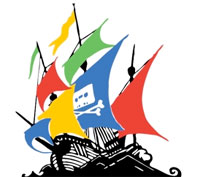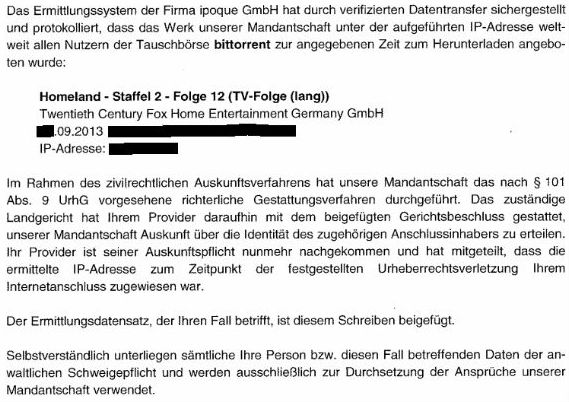 During the last couple of years entertainment companies have heavily criticized Google for linking to copyright-infringing material in its search results.
During the last couple of years entertainment companies have heavily criticized Google for linking to copyright-infringing material in its search results.
Google has responded by removing many millions of links but apparently that’s just not enough. In the past couple of weeks the world’s largest search engine has become a punching bag for the music and movie industries and today they find themselves battered again, this time by a British House of Commons report.
The Culture, Media and Sport Committee comprises MPs from several parties including those from the Conservative / Liberal Democrat coalition government and Labour opposition. Today in a new report aimed at supporting the creative economy, the Committee dedicates an entire section to copyright and piracy issues. It has many targets for criticism but begins with a swipe at the UK’s leading Internet rights groups.
Open Rights Group
“The relationship between the strength of Britain’s creative industries and robust copyright laws is acknowledged by the Open Rights Group which aims radically to liberalise the use and sharing of copyrighted content.
“While we share the Open Rights Group’s attachment to freedom of expression via the internet, we firmly repudiate their laissez-faire attitudes towards copyright infringement,” the Committee says.
Repeating industry claims that film and music piracy results in lost annual sales of £400 million (while noting it could be well in excess of £1 billion) the report says the Open Rights Group’s “quibbles” that the figures “were not based on exact science” should not detract from the damage piracy causes the creative economy.
IP Crime Unit and site blocking
 The report goes on to mention the creation of a new City of London Police unit dedicated to cracking down on intellectual property crime and reveals that a first-of-its-kind conference is being planned “to bring players from across the world to London” to discuss enforcement issues.
The report goes on to mention the creation of a new City of London Police unit dedicated to cracking down on intellectual property crime and reveals that a first-of-its-kind conference is being planned “to bring players from across the world to London” to discuss enforcement issues.
On the blocking of infringing websites by ISPs the Committee said there were signs that the courts are making it easier, citing comment from the MPAA supporting “improvements to the justice system” to allow site blocking orders to be obtained more efficiently.
“We encourage businesses to use the current law to bring claims wherever it is feasible for them to do so. There nonetheless remains a systemic failure to enforce the existing laws effectively against rife online piracy,” the report notes.
But inevitably the big guns were turned on the messenger.
Google in the firing line again
The Committee begins by quoting Google itself, who at the time were removing around 9 million URLs from its indexes every month at the request of copyright holders. This was countered with information provided by the BPI who said that despite Google’s alleged algorithm changes, the instances of infringing sites turning up in the top 10 results had fallen only marginally, from 63% in August 2012 to 61% a year later. Clearly the Committee are unimpressed.
“We strongly condemn the failure of Google, notable among technology companies, to provide an adequate response to creative industry requests to prevent its search engine directing consumers to copyright-infringing websites,” the report states in emphasized bold type.
“We are unimpressed by their evident reluctance to block infringing websites on the flimsy grounds that some operate under the cover of hosting some legal content. The continuing promotion by search engines of illegal content on the internet is unacceptable. So far, their attempts to remedy this have been derisorily ineffective,” it continues.
“We do not believe it to be beyond the wit of the engineers employed by Google and others to demote and, ideally, remove copyright infringing material from search engine results. Google co-operates with law enforcement agencies to block child pornographic content from search results and it has provided no coherent, responsible answer as to why it cannot do the same for sites which blatantly, and illegally, offer pirated content.”
Turning up the heat further still in an attempt to have Google held accountable through the reporting of a government office, the report has more proposals.
“We recommend that the Intellectual Property Office’s annual reports include an assessment of the degree of online copyright infringement and the extent to which identified search engines and other internet services facilitate this. We further recommend that the Government consider how it might incentivise technology companies to hinder access via the internet to copyright infringing material.”
Of course, while “carrots” are offered to do something about infringement, no document of this nature could conclude without a recommendation to bring out the sticks.
10 years in jail for “serious” online infringement
Citing the successful prosecution of SurftheChannel owner Anton Vickerman, the report notes that while large scale copyright infringement in the offline world can result in harsh penalties, online those punishments are limited to two years. To sidestep this issue a decision was made to prosecute Vickerman on counts of Conspiracy to Defraud which ultimately secured a four year jail sentence. In future the Committee would like to see such maneuvering become unnecessary.
“We recommend that the maximum penalty for serious online copyright theft be extended to ten years’ imprisonment. Criminal offences in the online world should attract the same penalties as those provided for the physical world by the Copyright, etc. and Trade Marks (Offences and Enforcement) Act 2002,” the Committee notes.
Digital Economy Act
Finally the report criticizes the delay in implementing the controversial Digital Economy Act, stalled now for the best part of three years. In particular, the issuing of warning notices to infringers should come sooner rather than later.
“We recommend that a copyright infringement notification system envisaged by the Digital Economy Act be implemented with far greater speed than the Government currently plans. By targeting information letters to the worst infringers, early implementation will, we believe, serve an important educative purpose which could percolate more widely,” the report states.
However, if the government can’t get its act together, a voluntary scheme between ISPs and copyright holders should be put in place.
“We are encouraged by the progress that has been made towards instituting a voluntary system of warning letters following discussions involving internet service providers and rights owners. If this can be achieved by mutual cooperation rather than legislation, it will be a major step forward.
“However, should voluntary initiatives such as this prove unsuccessful then the Government should ensure that the equivalent measures in the Digital Economy Act are promptly put into effect,” the Committee concludes.
Source: Google “Condemned” By UK Politicians For Linking to Piracy

 With what looked like an unbeatable 8-1 lead, Team New Zealand required just one more win to bring the America’s Cup home. But nothing is guaranteed in sport, a fact underlined by Oracle Team USA this week.
With what looked like an unbeatable 8-1 lead, Team New Zealand required just one more win to bring the America’s Cup home. But nothing is guaranteed in sport, a fact underlined by Oracle Team USA this week.





